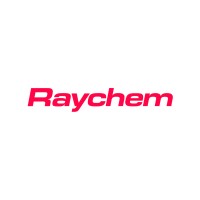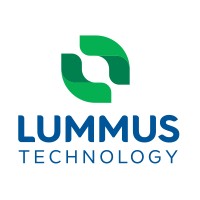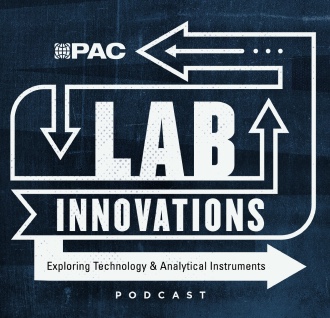-
Valve controls and actuators product offering
Valmet offers a unique and complete range of solutions for your valve automation needs. With our actuator and controller products you can fulfill end user requirements for control, emergency shutdown and on/off valve applications. Our valve automation solutions will ensure the best possible valve performance and compliance to environmental regulations, regardless of valve make, model or manufacturer. Our offering ranges from limit switches to reliable actuators and intelligent ...
-
Flow control solutions for industrial gas applications
Your partner in industrial gas We are an industry leader with decades of experience in delivering valves to a wide range of industrial gas applications around the world. We regularly partner with major players in industrial gas. We are committed to providing our customers with a valve portfolio that meets their evolving needs. Reliable performance We provide reliable, high-perfor- mance industrial gas flow control solutions. Since the 1970s, we have provided valves and accessories ...
-
Latest catalyst provides more methanol for longer
Johnson Matthey's latest methanol synthesis catalyst, KATALCOTM 51-102, was introduced in 2018 to offer improved catalyst stability and therefore higher end-of-life activity and extended lifetimes than conventional methanol synthesis catalysts. Since launch, KATALCO 51-102 has been successfully installed in two methanol plants and a third is planned for later in the year. In this article Johnson Matthey provides an update on the proven performance of KATALCO 51-102 during lab ...
-
Industrial Heat Tracing Solutions
Advanced Industrial Solutions. As the world’s largest provider of complete electrical heat management systems, primarily for the general process, oil and gas, chemical, and power generation industries, RAYCHEM provides innovative RAYCHEM products and TRACER turnkey solutions. RAYCHEM heat trace systems offer superior reliability with the highest lifetime value at lower installed cost and lower cost of ownership. Our premiere turnkey solutions include full life cycle support—ranging ...
-
PAC solutions for renewable diesels
Governments and businesses are increasingly committed to steep decarbonization targets, establishing hydrogen as a key component in the energy transition. As of this writing, McKinsey reports that 64 countries, representing 89% of global CO2 emissions, have made net-zero pledges, while financial institutions and private sector enterprises also continue to increase their decarbonization aspirations. Going forward, the energy mix is projected to shift toward clean electricity, complemented ...
-
Axens is a group providing a complete range of solutions for the conversion of oil and biomass to cleaner fuels, the production and purification of major petrochemical intermediates as well as all of natural gas' treatment and conversion options. The offer includes technologies, equipment, furnaces, modular units, catalysts, adsorbents and related services. Axens is ideally positioned to cover the entire value chain, from feasibility study to unit start-up and follow-up throughout ...
-
Designed to perform. To help you optimize your process performance and reliability, Valmet approaches each process and application as a specific challenge. Our control, on-off and ESD valves, accessories, intelligent devices and software products are engineered to meet these challenges. The selection of the right valves and accessories in demanding and often critical applications in oil and gas, pulp and paper or energy industry applications is often a matter of both business ...
-
Driving the CCUS market and carbon transformation. Now. As a world-leading engineering and technology provider for the energy transition, Technip Energies has over half a century of experience in energy, gas processing, CO2 management and significant infrastructure developments. Today, the global community is facing an acceleration of decarbonization with a worldwide 7Gtpa target to be reached by 2050. The era of carbon capture, utilization and storage (CCUS) is here with a tougher ...
-
Jet Zero Strategy: Delivering net zero aviation by 2050
The early evolution of air travel in this country — from the first commercial flight to the first jet airliner, the British Comet — took just 30 years. In that short time, aviation technology developed at an astonishing pace. But it showed what we can achieve. We now have even less time to transform aviation again. Our target of net zero flying by 2050 is hugely challenging. Not just because aircraft have always relied on fossil fuels, but because aviation is only just ...
-
LCH Process for the production of blue hydrogen
There is an urgent need to limit the rise in global temperatures to avoid severe environmental and societal impact. Many countries across the world have committed to zero emission targets being met by 2050, this timeframe is now only one typical syngas plant lifetime away. The provision of decarbonised hydrogen at scale is an essential step to achieve this. Johnson Mattheys (JM's) LCH technology enables decarbonised hydrogen to be produced at scale now, in the most sustainable ...
-
AMETEK Process Instruments is a worldwide manufacturer of process analyzers and instrumentation. We focus our experience on designing new, innovative analyzers that help our customers achieve higher levels of productivity and quality. By seeking out ways to overcome the limitations of current methods of process monitoring, control and quality assurance, we have created some of the most capable, unique technologies in the world. A business unit of the Process and Analytical Instruments ...
-
Finding low-emission solutions for a sustainable tomorrow with true insight
Reducing emissions is essential for a sustainable tomorrow and all solutions and technologies must be considered, including energy efficiency, electrification, increased renewable energy, hydrogen and CCUS. Across industries and corporations, there is a clear acceleration of decarbonisation and net-zero ambitions. At Technip Energies, we believe in a low-carbon future. Leveraging our expertise and credible track record, we are helping our clients worldwide to cost-effectively ...
-
Ammonia cracking - Enabling access to renewable hydrogen
Sustainably produced hydrogen is a key vector for decarbonising many hard-to-abate industries such as transportation, power and chemical manufacture. The regions expected to be prominent producers of decarbonised hydrogen are not necessarily where the demand resides. Ammonia is a potential hydrogen carrier which offers advantages in containing no carbon molecules and it is a globally traded commodity today. Ammonia cracking allows the conversion of ammonia back into hydrogen to ...
-
Advanced analytical measurement solutions for emerging feedstocks
Can sustainability and profitability go hand in hand? Join us for an insightful webinar that explores how advanced analytical measurement techniques can drive both growth and resilience in the petrochemical industry. With expertise in distillation, elemental analysis, and gas chromatography, PAC offers innovative solutions to optimize operations for players in plastic circularity. In this webinar, we will cover trends in the petrochemical market, including emerging feedstocks, ...
-
Environmental and economic benefits of electric process heating to reduce CO2 emissions
(Webinar) - As industries worldwide confront ambitious climate goals, electrification has become a vital strategy for reducing emissions and advancing sustainability. Whether in manufacturing, energy production, or heavy industries, electrification is transforming industrial processes by driving both environmental and economic benefits. While the primary goal is to move away from fossil fuel-based systems to significantly lower greenhouse gas emissions, electrification offers ...
-
How can process electrification accelerate decarbonization of refining and petrochemicals?
Is electrification the right fit to decarbonize the oil and gas sector? Despite global efforts, CO2 emissions continue to rise, placing the O&G industry under increasing pressure to reduce its carbon footprint. With the sector responsible for 15% of total energy-related emissions, and its associated processes heavily relying on fossil-fuels, strategic action is crucial to meet global climate goals. This webinar will explore the key drivers and challenges of decarbonization ...
-
Novel sulfur removal pathways to improve energy efficiency and decarbonisation
Decarbonisation and energy efficiency are key economic drivers for refining and petrochemical operators globally, along with emphasis on minimizing sulphur emissions. Sulphur removal has been practiced in the industry for decades. However, with the development of new media, adsorbents, and catalysts, it’s now possible to achieve the above stated goals by deploying these materials in different applications related to refinery and petrochemical sectors. This webinar will showcase ...
-
Exploring chemical recycling and bio-based plastics production in existing refineries
How do we meet the growing demand for plastics? The global refining, gas, and petrochemical industries are under pressure to decarbonise and adopt sustainable practices while meeting increasing needs for plastics. This webinar will provide you with the following insights in addressing these challenges: - Explore advanced solutions such as chemical recycling, bio-based plastics, and mechanical recycling - See how Axens integrates recycling technologies into existing refineries - ...
-
A new approach to catalyst recycling & sulfur recovery
Evonik’s catalyst reuse technologies enable today’s sulfur recovery unit operators to gain the activity they require while minimizing cost and environmental footprint, with the help of catalyst reuse technologies. You will benefit from the following insights: • Get an overview of how Evonik is leading the industry in catalyst reuse technologies, in particular for tail gas treating applications. • Explore the benefits of extending catalyst reuse from hydroprocessing ...
-
Heat tracing solutions for the hydrogen and carbon capture Industry
Around the globe, world leaders have pledged to invest in technologies such as carbon capture and hydrogen to help accelerate the energy transition. In this webinar we explain how Raychem solutions can play a vital role in protecting and optimizing H2 and CCUS application, by: • Keeping critical processes operational • Protecting pipes, tanks, and equipment from freezing Register today to benefit from the following insights: • Get an overview of Raychem complete systems • ...
-
Transforming hydrogen storage and transport: Honeywell UOP’s revolutionary approach
Join us for an insightful webinar where we delve into the hydrogen economy and discuss bankable and sustainable hydrogen transport projects that exist today. This session will focus on the commercialized and groundbreaking Liquid Organic Hydrogen Carriers (LOHC) technology that is revolutionizing the hydrogen economy. We will present an exciting case study demonstrating LOHC's differentiated benefits when transporting blue hydrogen produced in low cost regions and delivering that ...
-
The progress of sustainable aviation fuel solutions for the decarbonisation of aviation
As the world increasingly commits to steeper decarbonization targets, the aviation industry is determined to develop sustainable solutions to produce cost-competitive, high-yield jet fuel with minimal environmental impact. The International Air Transport Association (IATA) estimates that the 2024 production volume of sustainable aviation fuels (SAF) will triple from 2023 levels – soaring to 1.5 million tonnes. This is in line with larger SAF production trends, as 2023 levels ...
-
Decarbonising process heat with industrial heat pumps and steam compressors webinar
Industrial energy consumption accounts for about 25% of energy demand and CO2 emissions worldwide, with process heat being the most common application. Hydrocarbon and basic chemical processing plants are particularly process heat-intensive. Heat demand for basic operations distillation and heating of fluids in US industry is about as energy intense as all other industrial heat applications combined. At the same time, there is a vast, unused potential for waste heat in many plant ...
-
Proven decarbonisation pathway for sustainable biofuels and chemicals production from waste webinar
The flexibility to make use of varying waste streams as feedstocks to replace primary fossil resources is a common goal in operations today. You may be looking at sources such as woody and agricultural biomass, MSW, RDF, SRF, sewage sludge, or non-recyclable plastic to produce bio or circular chemicals or sustainable fuels: Bio Syngas, green hydrogen, SAF, sustainable maritime fuels, or BioMethanol. The key question is how to decarbonize these assets to meet sustainability and ...
-
Innovative H₂ Solutions to shape the hydrogen economy
View this webinar for an insightful journey into the future of sustainable energy with Honeywell H₂ Solutions. In this exclusive webinar, we'll delve into cutting-edge innovations in hydrogen technology, focusing on Blue Hydrogen solutions and Liquid Organic Hydrogen Carriers (LOHC). Attending will offer these valuable benefits: - Discover how Honeywell is leading the way in transforming the energy industry through Blue Hydrogen, a game-changing process that reduces carbon ...
-
Overcoming roadblocks to decarbonisation webinar
Reducing global CO2 emissions and limiting the increase in global average temperature to 1.5°C is probably the greatest challenge humanity has ever faced. The continuous increase in strength and frequency of natural disasters accompanied with record-high temperatures have drastically accelerated the need to take action to reduce our carbon impact. There is a global consensus between governments, companies, and the public that there is a need to decarbonise our societies and, ...
-
A hidden threat to refining and petrochemical operations
Did you know that a seemingly insignificant amount of biofilm can negatively affect heat exchanger reliability and efficiency and, as a result, significantly limit production? Attend this webinar from Solenis to gain valuable insights into risks and solution methodologies for biofilm issues. • Learn how biofilm can affect your profitability and production efficiency • Explore novel technologies from Solenis that mitigate the risks posed by biofilm • Hear about a leading ...
-
Mission critical electric heat tracing solutions to support the energy transition webinar
Around the globe, clean fuels are helping reduce carbon emissions. And world leaders have pledged to invest in technologies such as carbon capture and hydrogen to help accelerate the clean energy transition. Biofuels, hydrogen, liquefied natural gas and carbon capture technologies are driving the transition to clean fuels and CO2 reduction. This webinar gives you the opportunity to learn how RAYCHEM solutions for the energy transition markets can enable and optimize your carbon ...
-
New digital tools to improve operational profitability in refineries Webinar
View this webinar to learn how you can leverage new digital tools as part of the Honeywell UOP upgraded PremierPLUS Performance Services offering to avoid unplanned downtime, optimize process performance, manage personnel changes, and reduce energy and emissions. The PremierPLUS Performance Services offering addresses these challenges and can improve operational profitability by an average of $1M to $5M per year. Attending this webinar will give you an overview of Honeywell ...
-
Maximizing renewable diesel and sustainable aviation fuel yields
Investments in renewable diesel (RD) and sustainable aviation fuel (SAF) production are gaining considerable momentum and are expected to play a vital role in reducing carbon emissions for heavy-duty transportation. Currently, the majority of these projects focus on the production of HEFA (Hydroprocessed Esters and Fatty Acids). Chevron Lummus Global combines the renewable processing catalyst experience and technology of ART's ENDEAVOR™ catalyst system, CLG's hydroprocessing ...
-
Enabling energy transitions with the Callidus ultra blue Petrochemical burners
Join this webinar to learn how your renewable energy and net zero operations can dramatically lower nitric oxide (NOx) emissions with the Honeywell Callidus Ultra-Blue Burner system. Fuels are changing in order to meet corporate commitments to carbon reduction and net zero goals. As your operations use more hydrogen and renewable fuels, production of nitric oxide is increasingly scrutinized in both external regulations and internal emissions targets. Attending this webinar ...
-
The Sustainable Solution for HydroProcessing Catalysts
Unveil the path to sustainable catalyst processes with Excel® Rejuvenation Technology! Join us as we delve into the art of catalyst rejuvenation, uncovering the means to propel your processes towards enhanced sustainability and waste reduction. Learn how to steer your operations away from wasteful practices and embrace sustainability using Evonik's Excel® Hydroprocessing Catalysts solutions. Our certified Life Cycle Assessment (LCA) lays bare the potential emissions you can ...
-
Webinar discussing developments and solutions for renewable fuels testing
Regions and nations around the world are swiftly translating their climate targets into investments in renewable energy and fuel production. This necessitates a multifaceted approach and innovative solutions. Join us for this webinar as we report on the latest developments in the renewable fuels industry, with a particular focus on the transportation sector. We will discuss a range of renewable fuels, including SAF, ethanol, biodiesel, hydrogen, and their derivatives, while exploring ...
-
Low cost production of renewable diesel and sustainable aviation fuel
Feed flexibility is critical for operators to stay competitive and deliver high-quality products. But diversifying your feed can bring its own set of challenges. It gets even trickier when working with renewable feedstocks from biological sources. These materials are highly olefinic and might be packed with heteroatom contaminants. To turn them into something valuable, you need substantially more hydrogen than you would for conventional petroleum hydrotreating. We're talking 1,700 ...
-
Navigating Complexities of Renewables Processing: Feedstocks, Legislations, Challenges & Solutions
Refineries are shifting away from producing traditional fuels to remain relevant, compliant and profitable. Join us to learn more about recent developments in renewable feedstocks processing. In this webinar from Ketjen, you will gain an understanding of the regulations and drivers that shape the renewables market. You will also have a chance to learn about operational challenges you may face while processing feedstocks with various amounts and grades of HVO or waste plastic ...
-
Decarbonisation with Honeywell Sustainability Portfolio and the Inflation Reduction Act
The Inflation Reduction Act (IRA), passed by the US government on August 16, 2022, provides nearly $370B in clean energy and climate funding over the next decade There has never been a better time to invest in a more sustainable future. Our upcoming webinar will provide valuable insights into key IRA provisions and enabling technologies to accelerate industrial decarbonisation and achieve your long-term financial and sustainability goals. This webinar will offer an incredible ...
-
Applying Crude to Chemicals: Technologies for effective petrochemicals production
With the consumption of petrochemicals increasing globally and the demand for transportation fuels under pressure from energy transition initiatives, refiners are being driven to optimize their facilities and explore revenue streams outside of the traditional transportation fuel value chains. There are several alternatives and methodologies to capture additional value from crude oil through conversion into petrochemicals to consider. This webcast covers: - How to convert a ...




































